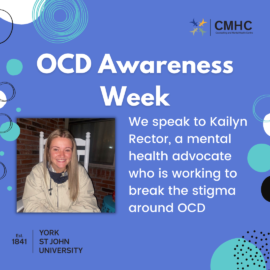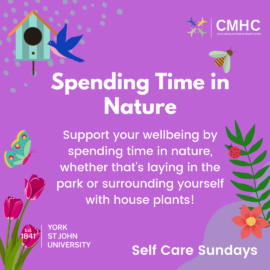Last week we saw World Lets Stop Shouting Day on the 6th of November. But what is it all about?
‘Lets Stop Shouting’ was created by Yasmin Shaheen-Zaffar, a therapeutic counsellor, who set up this awareness day to open up the conversation without shame or blame about the impact shouting has on our physical and mental health and relationships. It’s aim is to raise awareness, advocating passionate and difficult conversations, and promoting non-violent communication.
We all know how unpleasant it is to be shouted at, but do we really understand just how much of a negative impact this can have on our mental wellbeing? There are several negative effects on a person’s physical and mental wellbeing, whether you are the one on the receiving end of the shouting, or equally being the one doing the shouting.
So how can being shouted at impact on a person’s wellbeing?
While it may seem obvious, it is said that if you constantly experience yelling and shouting, you are more likely to develop depression. Living with constant emotional abuse in the form of shouting, criticising, undermining and belittling to name a few, is bound to take its toll and lead to feelings of sadness and low self-esteem.
NAMI state that “Being frequently yelled at changes the mind, brain and body in a multitude of ways including increasing the activity of the amygdala (the emotional brain), increasing stress hormones in the blood stream, increasing muscular tension and more. Being frequently yelled at as children changes how we think and feel about ourselves even after we become adults and leave home. That’s because the brain wires according to our experiences—we literally hear our parents’ voices yelling at us in our heads even when they’re not there.”
As a parent myself, and having two young boys that are constantly on the go and full of energy, it is easy to slip into the behaviour of shouting to get my point across. I often find myself shouting thinking that what I am saying to them is in their best interest, but on reflection explaining these things to them is likely to have more impact. Given the negative impact that I know shouting can have, I have really made a conscious effort to try and take a different approach in my parenting.
An article published by OptimistMinds states that when you do succumb to anger, you are not in the best mind to make decisions or adopt the best disciplinary measures. Research suggests that shouting at kids actually makes their behaviour problems worse, leading to a vicious circle of having to shout more and more to try to correct them, which is clearly not the best way to address things. They state that as well as inflicting emotional pain and fear when shouting at your children, the verbal abuse can cause further and deeper psychological issues that continue into adulthood.
Obviously we have talked a lot about shouting at Children, but the same rule applies for adults too!
So how about looking at this from another point of view:
How does BEING a shouter affect your health?
When we get angry, as well as an emotional impact, unsurprisingly this can affect us physically also. As well as the usual headaches / migraines etc, it can in fact affect many of our bodies systems. In the cardiovascular system alone there can be an increase of heart and blood pressure, increased blood glucose levels and fatty acid levels in the blood. When these symptoms occur over a prolonged period of time, they can lead to clogged or damaged vessels , ultimately increasing the risk of heart attack or stroke. Affects on the immune system can decrease thyroid function and increase the chance of getting cancer.
So bearing all of that in mind, it seems pretty vital to try and manage our anger. Here are a few tips to try and manage this as suggested by the charity Mind:
Look out for warning signs
Anger can cause a rush of adrenaline through your body, so before you recognise the emotion you’re feeling you might notice:
- Your heart is beating faster.
- Your breathing is quicker.
- Your body is becoming tense.
- Your feet are tapping.
- You’re clenching your jaw or fists.
Recognising these signs gives you the chance to think about how you want to react to a situation before doing anything. This can be difficult in the heat of the moment, but the earlier you notice how you’re feeling, the easier it can be to choose how to manage your anger.
Buy yourself some time to think
- Counting to 10 before you react.
- Taking yourself out of the situation by going for a short walk – even if it’s just around your block or local area.
- Talking to a trusted person who’s not connected to the situation, such as a friend, family member, counsellor or peer support group. Expressing your thoughts out loud can help you understand why you’re angry and help calm you down. If you don’t feel comfortable talking to someone you know, you can confidentially call the Samaritans 24 hours a day to talk about anything that’s upsetting you.
Try some techniques to manage your feelings
There are many ways to calm down and let go of angry feelings, depending on what suits you and what’s convenient at the time you are angry.
- Breathe slowly – try to breathe out for longer than you breathe in and focus on each breath as you take it.
- Relax your body – if you can feel your body getting tense, try focusing on each part of your body in turn to tense and then relax your muscles. See our pages on relaxation for more tips on how to relax.
- Try mindfulness techniques – mindfulness can help you to be aware of when you’re getting angry and can help calm your body and mind down. See our pages on mindfulness to learn more.
- Exercise – try to work off your anger through exercise. Sports like running or boxing can be really helpful for releasing pent up energy.
- Use up your energy safely in other ways – this can help relieve some of your angry feelings in a way that doesn’t hurt yourself or others. For example, you could try tearing up a newspaper, hitting a pillow or smashing ice cubes in a sink.
- Do something to distract yourself mentally or physically – anything that completely changes your situation, thoughts or patterns can help stop your anger escalating. For example, you could try:
- putting on upbeat music and dancing
- doing something with your hands, like fixing something or making something
- doing something creative like colouring or drawing
- writing in a journal
- taking a cold shower
If you feel like you need support in managing anger issues, there are a number of services which can help, but as always, the first port of call recommended is your GP. Many NHS Trusts run free local anger management services – you can ask your GP what’s available near you. Here at the Centre we also offer a range of services that can help.
~
Author: Kirsty
~
References:
Jacobs, H. (2018, Feb) The Problem With Yelling. Retrieved from Nami.org.
Optimist Minds (accessed 30/12/2021) Effects Of Shouting On Health (A Brief Guide) | OptimistMinds
Mind. (2018). Anger. Available: https://www.mind.org.uk/media-a/2962/anger-2018.pdf.



